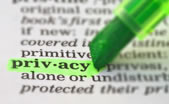WHEN CAN TWEETING AND BLOGGING BE IN CONTEMPT OF COURT?
21 January 2011
Media coverage of the murder of Joanna Yeates has focused the attention of journalists and lawyers on the Contempt of Court Act 1981 (CCA). The Act is designed to protect legal proceedings, and especially jurors, from being prejudiced by media reporting. A classic example would be the publication, shortly before or even during a criminal trial, of a defendant's previous convictions.
Professional journalists are trained on how to avoid being in contempt, which can result in up to 2 years' imprisonment and/or an unlimited fine. Nowadays, however, anyone with an internet connection or a smart phone can disseminate their opinions to the public via Twitter, blogs, message boards and social networking sites. Such online publishing is, at least in theory, likely to be covered by the contempt rules. However, most amateur journalists, bloggers and pundits are probably unaware of the 'strict liability rule', let alone the serious penalties.
The 'strict liability rule' (so called because the intention of the publisher is irrelevant) applies to any publication, addressed to any section of the public, about proceedings which are 'active'. A criminal case is active from the time of arrest, for example. The test is whether there is a substantial risk that justice will be seriously prejudiced.

Could we see Tweeters and bloggers being committed for contempt for posting prejudicial material, even if they had not heard of the strict liability rule? If not, is it fair that only professional journalists be restricted in what they publish? Some say that the CCA is no longer effective in light of social media, and that professional news providers in the UK should be freed from its restrictions. There is no such rule in the US, where jurors are carefully handpicked to avoid any who may be prejudiced.
On 12 October 2010, the Attorney General, Dominic Grieve, spoke about these issues to the Criminal Bar Association. In his view, "the reality is that the majority of people don’t rely on such blogs for their news; they rely on television, radio and national newspapers, either in hard print or increasingly their online sites." But, he added, "if it is increasingly easy for individuals to act as unofficial journalists and publishers, the greater the need for general understanding about why restrictions are sometimes necessary. This extends particularly to those who run websites upon which the public place their opinions."
We are not sure if the Attorney General appreciates how fast things have been changing in the way people receive news. As long ago as the beginning of 2009, a few weeks before a criminal fraud trial, we represented a website in court following a claim of potential contempt in relation to user-generated posts on a message board. Various posts were taken down, the prosecution and defence lawyers were encouraged by the judge to keep an eye on relevant websites and an appropriate direction to the jury (e.g. that they must not do internet research) was no doubt given.
 With some Twitter users having at least as many followers as newspapers have readers (Stephen Fry had more people following him in December 2010 than the combined ABC figures of The Times, Independent, Guardian, Telegraph and FT), it may be time for Twitter users, bloggers and other publishers via social media to become more aware of the law of contempt.
With some Twitter users having at least as many followers as newspapers have readers (Stephen Fry had more people following him in December 2010 than the combined ABC figures of The Times, Independent, Guardian, Telegraph and FT), it may be time for Twitter users, bloggers and other publishers via social media to become more aware of the law of contempt.
With that in mind, we have prepared some general information on the strict liability rule (professional legal advice should be sought on specific issues) – see box.
The Strict Liability Rule:
The following guidelines are not comprehensive and are for general information only.
- Test: whether there is a substantial risk that the course of justice in the proceedings will be seriously impeded or prejudiced.
- Rule applies to 'active proceedings', e.g. once a person has been arrested or a court hearing date has been fixed.
- Serious prejudice means if the communication has the potential to alter the outcome of proceedings.
- Prominent or striking allegations that would be novel to readers will increase the likely impact on potential jurors.
Risk factors
Higher Risk
- Criminal proceedings
- Trials by jury or lay magistrates
- Trial imminent (during the trial is the highest risk time)
- Wide readership
- Specific allegations, especially which are new or striking, e.g. publishing a defendant’s previous convictions, bad character, admissions or identity (when identity may be in issue)
Lower Risk
- Civil cases and appeals
- Judges (especially High Court, Court of Appeal and Supreme Court)
- Trial very far off (where allegations would have 'faded' from the minds of jurors)
- General discussion of issues
Defences include:
- publication made in good faith as part of a discussion of matters of public interest, where the risk of prejudice was merely incidental to the discussion; and
- publication was a fair and accurate report of legal proceedings held in public, published contemporaneously and in good faith.
There are other laws relating to contempt of court and reporting restrictions. Professional legal advice should be sought in relation to specific issues.
This content is intended for general public guidance and to highlight issues. It is not intended to apply to specific circumstances or to constitute legal advice.

"Could we see Tweeters and bloggers being committed for contempt for posting prejudicial material, even if they had not heard of the strict liability rule?"

